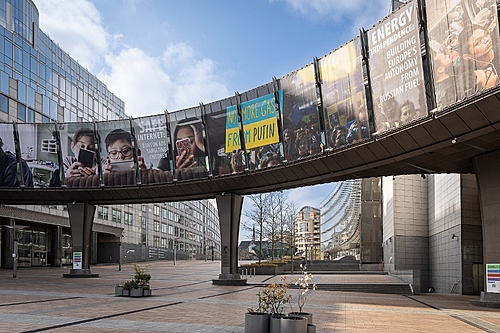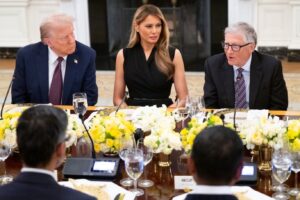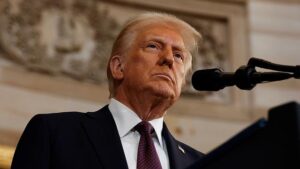
While the war in Ukraine takes on new contours with Kiev’s counteroffensive on the battlefield, leaders and representatives of the Russian opposition held a conference in Brussels, at the European Parliament, on June 5th and 6th to discuss Russia’s future.
Russian politicians, activists, journalists and political scientists, who now live outside the country, sought to solidify an anti-war movement and articulate strategies to think about new paths for Russia. However, the event also exposed that the opposition coalition faces difficulties in internal articulation and penetration in Russian political life.
Two premises united all the participants: the condemnation of the war in Ukraine and the opposition to the government of Vladimir Putin. It was not the first such event since Russia started the war in Ukraine. On April 30, Russian oppositionists signed a joint political declaration in Berlin after several weeks of work to define the terms of the document.
The “Berlin declaration” was the first political document released since February 24, 2022, the start date of the conflict, to launch guidelines to unify the Russian political opposition. The appeal, in particular, states that “Russian troops must be withdrawn from all occupied territories, war criminals must be brought to justice and victims of aggression must be paid reparations”. The declaration also contains clauses on the need to eliminate “Putin’s illegitimate and criminal regime” and the inadmissibility of “implementation of imperial policy at home and abroad”.
In the opening panel of the Brussels conference, entitled “The Day After” (“The Day After”, in English), one of the most prominent Russian oppositionists, the former oligarch and member of the anti-war committee Mikhail Khodorkovsky set the tone of the motivations of the conference by reiterating the terms signed in Berlin.
“We, at least the majority of us in this room, have come together because we share common values, values that were even manifested in the Berlin declaration: war is aggressive and criminal; the regime that triggered it is illegitimate and criminal; Ukraine, with its 1991 borders, must receive compensation; war criminals must be punished; political prisoners must be released; the existence of an imperial policy inside and outside the country is unacceptable,” said Khodorkovksy.
Despite the June conference sounding like a reiteration of certain agendas already consolidated within the context of the opposition emigrated from Russia, experts who participated in the conference point out that the uniqueness of this event was an important step towards creating a more legitimate opposition coalition in the eyes of the West. . This is what political scientist Ivan Preobrazhenskii, who participated in the event in Brussels, claims.
In an interview with Brazil in fact, the analyst pointed out that the main objective of the conference was, “as a principle, to organize a conference in the European Parliament, being the largest and most representative conference of its kind since the large-scale aggression against Ukraine”. According to him, the main task that the organizers took on themselves was “to demonstrate a certain ‘adequacy’ of the Russian anti-war movement”,
“Demonstrate that in reality the active and inflated rumors about the fragmentation of various opposition groups do not correspond to reality. Of course, there are disagreements, and that’s normal, but there is no hardcore ‘all against all’ conflict among the Russian anti-war community,” he argues. Added to that, the anti-war community itself saw this meeting as a step towards a certain legitimation, recognition of itself as an alternative Russia, with which the European Parliament and the European Commission would be ready to carry out certain negotiations”, he explains.
The fact that this type of articulation takes place abroad, between political forces that live and act outside Russia, is naturally a weakness in terms of representation and impact on the situation within the country. But at the same time, this obstacle is a condition that reflects the current political situation in the country, especially in the context of a war.
After the beginning of the intervention in Ukraine, any critical activity – in politics, culture, journalism – became unfeasible after the approval of laws that punish the “discredit of the Armed Forces of Russia”. Furthermore, the war saw a mass migration from Russia, creating a diaspora of Russians scattered across various countries, particularly in Europe.
Political scientist Ekaterina Shulman, one of the prominent Russian academics to attend the Brussels conference, noted that there is an expectation for the European Parliament to elect a professional to monitor the rights of Russians outside Russia, to be precisely that link between Russia and its dissidents.
Opposition politician Leonid Gozman, who serves as president of the Union of Right Forces of Russia, in his speech, called attention to the importance of dialogue with people in Russia and exposed the problem of isolationism of the Russian community that emigrated.
“We rarely turn to our compatriots. We appeal to each other and to Western leaders. But we will live alongside the people who voted for Putin, who believe that Russia was attacked by NATO. Where do they go? They will stay in Russia, “he said.
The theme of maintaining ties with Russian citizens was one of the main topics of the conference, raising a discussion about concerns about the possible blocking of networks such as YouTube and Telegram, which, in practice, remain the only platforms where Russians gain access to alternative information and/or criticisms of the official version of facts propagated by the Kremlin. All independent media outlets that had any projection in Russia were barred from operating in the country after the outbreak of the war.
Ivan Preobrazhenskii commented that one of the proposals discussed during the event was the possible creation of new informational platforms to combat fake news within Russia. He noted that the vice-president of the European Commission, Vera Yurova, assured during the event that the European Union is trying to carry out support work in this regard with large Western technology companies such as Google, Apple, YouTube.
Absence of Navalny’s team exposes fragmentation
Despite efforts to advance in the search for unity, a fragmentation among the Russian opposition bloc was evident in the conference program itself: the team of the Anti-Corruption Fund (FBK), organization of Aleksey Navalny – the most notorious Russian oppositionist, currently imprisoned – , declined the invitation to the conference.
According to Leonid Volkov, Navalny’s chief of staff, members of his staff did not attend the meeting for fear of being “in the same boat” with rival opposition figures who do not share his views. On the other hand, the dynamics of the conference pointed to a more horizontal articulation of the country’s opposition forces.
Navalny’s team had already ignored the articulation of the anti-war movement in April, during the Berlin conference, generating criticism of sectarianism from other Russian opposition forces.
search for horizontality
In addition to a working group to continue articulating with different European power structures, the Brussels conference did not produce concrete results and highlighted the challenges of legitimacy and representation facing the Russian population. The opening of a less competitive dialogue with the consent of the European Parliament, however, has already been seen as progress.
Political scientist Ivan Preobrazhenskii notes that “now the anti-war community is strongly oriented not to create hierarchical structures, not to create personalistic leadership schemes in which one person can make decisions for everyone else.”
According to him, the success of the anti-war movement was to take a first step in the search for legitimacy and horizontality in proposing agendas. The advances are more of method than of content. But Preobrazhenskii highlighted that one of the paths indicated is to promote a political system in Russia that is closer to parliamentarism.
“The anti-war community, including Aleksey Navalny, whose team did not attend this meeting, supports the idea that in the future Russia will be a parliamentary republic, and not a constitutionally formal ‘super-presidency’ as it is now,” he said.
Editing: Thales Schmidt
Source: www.brasildefato.com.br

